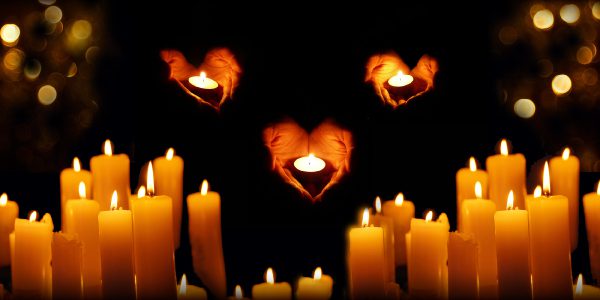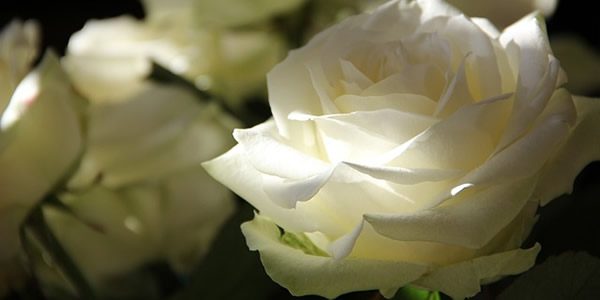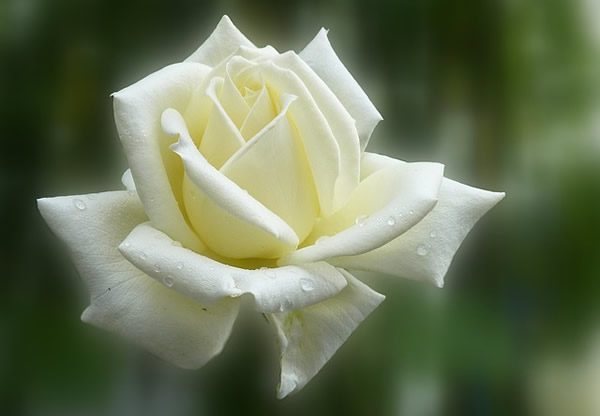What does it mean to be initiated? To go through a rite of passage? What does it mean to stand up, to be seen, to be a leader? What does it mean to have the Mysteries revealed to us?

People will sometimes ask me what tradition I’m in, or just ask “Have you been initiated?” Sometimes others will ask, “Are you ordained?” or “What tradition are you ordained in?” And the answer is complex. The Pagan traditions I’ve been a part of haven’t had a formal initiatory process; not in the way most people trained in Wicca seem to mean. And though I did a three-year leadership program at Diana’s Grove, that process did not offer a formal ordination in any specific Pagan church, though graduates of the program have successfully used it in lieu of an M.Div when applying for other programs.
What I often want to say in answer to the question is, “Yes, I have been initiated.”
Because I believe that initiation is a process. Initiation is a right of passage, and there are many different rites of passage that we each can go through. That sometimes, an initiation can take different forms. Certainly one form of initiation is going through a formal education in a specific religious tradition and being accepted into that tradition by the leaders who have already gone through the process. It’s also possible to become initiated into the inner mysteries of spirit by the struggles our lives put before us.
What is a Rite of Passage?
Often when we say, “Rite of Passage,” we mean, “A formally assembled group witnessing and affirming and affirming our Rite of Passage.” Weddings, births, baby blessings, graduations, comings of age, ordinations…these are all experiences that have a certain expectation to them, a formality. They are perhaps more about the family/group/community than they are about the person.
When I got married, I didn’t suddenly change. But my family’s relationship to me changed, and my (now ex) husband’s family as well.
Many of the initiations we go through nobody will witness but ourselves. Or, ourselves and our gods, if you want to look at it that way. The night we’re crying through the rainstorm because of a broken heart. The night we wonder what it’s all for, why we’re even here, why we bother to keep going. The morning we get the phone call that our father has passed away. The first time we get badly injured. The first time we are really sick or injured and have no one to help us. First time we have sex. First orgasm. First time we did our laundry on our own. First time we get into a car accident. First time we accidentally set an altar on fire in a ritual. First time we talk to the gods and they speak back to us. The first time we facilitate a workshop or a ritual. The first time we completely blow what we were supposed to say. The first time we lead a chant and it really works. The first time we’re lied to, the first time we’re betrayed by our mentor, or friend, or spouse.
These change us and shape us in ways no planned ritual can.
Initiation Into the Mysteries
And yet…there are ritual experiences that do shape us. That transform us. The rite of passage ritual I went through at Diana’s Grove at the culmination of my three years of leadership training still sits with me, heavy on my shoulders. Often when people say, “It’s a mystery,” what they mean is this: I can try to explain why my initiation ritual was meaningful to me, but I’ll never, ever be able to get it across in words. But perhaps I can give you a shadow, an echo, a look into that experience that cut me deep, that carved open a space inside of me and shaped who I am today.
I did a three-year leadership program at a retreat center called Diana’s Grove. It no longer exists, but at the time it was located in the Missouri Ozarks. The Diana’s Grove Mystery School grew out of the Reclaiming tradition as well as Jean Houston’s Mystery School, and it borrowed from other sources such as educational theory, psychology, hypnotherapy, mythology, and more. It wasn’t really a tradition or theology that was being taught, and rather, a process of personal growth, ritual facilitation, and group leadership. Many of the staff were agnostic or atheistic Pagans, so the program was intense and transformative, but my work there wasn’t an initiation into any particular religion.
It was still, though, an initiation into the mysteries.
Leadership Training
The fastest anyone could do the program was in three years. You had to first have attended a year of intensive weekends focusing on personal growth work before you would be considered for the general leadership program. And you had to be in that leadership program for a year before you’d be considered for the culminating and intensive Rites of Passage year. Some stayed in the intermediate program for several years; others who had pressing need of advanced leadership training could do a Rite of Passage year in their third year.
As I’d moved to the Diana’s Grove land as a staffer during my first year, I was expected to adhere to the rules other staffers did, even though I hadn’t yet been through the leadership program. Thus, I was sort of shoehorned into leadership training early. Then, I began leading a group in St. Louis of people who were engaged with the work of the mystery school, so the staff invited me into a Rites of Passage year in my third year.
Over the course of a ROP year, the ROP team (my team was 4 people) takes on more and more leadership and facilitation roles. We were given less and less time to plan things like ritual parts. Our “capstone project” was planning the programming for the Rites of Passage weekend, the most well-attended annual event at Diana’s Grove. The ROP team would also offer a large quantity of the programming; we’d be doing many of the workshops and leading most of the rituals.
Rites of Passage Rituals
The only part of the ROP weekend we wouldn’t plan would be our own Rites of Passage ritual. That ritual would be kept carefully secret from each of us, and the entire community (staff, members of the rest of the leadership program, alumni, and attendees) would be involved in planning and carrying out the ritual.
Unlike the initiation rituals within a particular tradition, these ROP rituals are designed specifically for the team. In the previous two years, I’d been part of the secret ritual planning shenanigans, so I knew the level of depth that went into planning one of these rituals to make it a customized experience for that year’s ROP team.
The rituals were deliberately designed to crack people open. To show them the mirror of their own hearts.
Each year, the mystery school focused on a myth. Or more accurately, a myth retold. My first year we worked with Arthurian myths. The second year, Psyche and Eros. The year of my ROP we worked with the Ballad of Tam Lin. During both of the first two years, I spent a good deal of the Rites of Passage ritual running around behind the scenes decorating spaces, lighting candles, carrying torches.
And in one case, donning armor to portray the Green Knight and destroying a large plaster pillar with a sledgehammer while the ROP team was blindfolded; all they would hear was the sound. At one ROP ritual, each team member was led, blindfolded, to a fire and surrounded by friends and family. There they sat in silence while they were eulogized.
I recall being nervous waiting to be led down to one of the ritual areas, wondering what they had in store for us.
The Roses

The main house was atop a large hill, and the four of us were led down the hill by our mentor to the ritual area in a converted barn. People were singing inside, and when we were led in, I was astounded. Usually I’m the one going crazy setting up elaborate ritual decorations, but the barn had been transformed into a grotto. Plants, trees, flowers, candles. And as the group came to silence, we saw four chairs in the center of the room. The four of us each took a seat.
I don’t recall the precise order of what happened, but after a meditation piece, people began to line up in front of each of the four of us. They had white roses. They knelt at my feet. They told me what I meant to them. They told me why my work was special. They told me how much they loved me. They laid the roses at my feet. over and over. And over and over. I’m shaking right now just writing this, the tears are falling from my eyes.
What you might not know about me is that I have a thing for roses. I wrote an entire book of rose poetry long ago. Roses, for me, were a symbol of love. Or perhaps, of love denied. For me, roses meant heartbreak and betrayal. They meant the pain of the heart. In the Ballad of Tam Lin, it’s a rose that draws Tam Lin to Jennet, it draws him forth from the Faerie realm.
And here there were roses upon roses laid at my feet. Roses of love, of honor, of respect.
The Candles
Eventually, people filed out of the barn leaving the four of us and a couple of our mentors. They spoke words to us, and then guided us to leave the barn. I was first in line, and I recall actually taking a step back from the door once I realized what was out there, out in the darkness.
As far as my eye could see, there were people standing on either side–two rows of people–holding candles. I took a breath and stepped into the gauntlet. The first person looked me in the eye. “I believe in you Shauna.” And the next, “I believe in you.” “I believe in you, Shauna.”
Over and over and over. Somehow I walked, but I couldn’t see. I couldn’t stop the tears. Every person said, “I believe in you.” They named me. And as I passed each of them I felt a weight fall on my shoulders, a heaviness. As I reached the end of the gauntlet, the words changed.
“I believe in you, Shauna.” “Don’t let us down.” “Don’t let us down, Shauna.” “We need you.” “We’re counting on you.” “Don’t let us down.”
There was more to the ritual; a long period of silent contemplation in the moonlight, and then each of us endured Tam Lin’s transformations while blindfolded and surrounded by dozens of people whispering at us. We each fought our own demons and shadows that night.
But it’s the roses and the candles that stick with me.
The Weight
There are some days when I am almost standing back in that row of candles, walking through the corridor of people’s faces lit by the flames in the darkness. And every time I’m standing there, I feel the weight of that honor. The weight of that respect. And the weight of that responsibility.
Whenever I do work as a Pagan leader, I try to remember that what I do has impact. That there are people counting on me. That–when my dreams are big, and because the projects and initiatives I take on are big–the impact is big too. It’s not that I don’t screw up. Wow, do I. But I try hard to live up to that honor, to that responsibility.
I believe at one point in the ritual, one of my mentors said something about how initiation and ordination is about becoming someone who can’t unsee your impact. That you can’t go back to the person who can pretend that you don’t have power, you can’t go back to pretending that what you do doesn’t matter.
I remembered back to the previous year’s Rite of Passage ritual. I had been given the task of getting enough chairs to all the ritual areas, including one special chair for someone who had some specific physical difficulties. In the frenetic last hours of setup, I’d forgotten about the special chair and so when this person arrived at the ritual area, she had nowhere to sit. Two other staffers went to a neighboring shrine and carried a heavy stone bench so that this participant could sit. One staffer injured their back carrying this bench.
I’ve never forgotten that moment, ever. The one thing we forget can cause ripples of impact, can cause pain and problems, for others on our team. For our community.
“Don’t let us down.”
Red roses, for me, have long symbolized the pain of love…of love denied. The roses might as well be red for the blood spilled from their thorns. I often thought of those thorns as the shards of broken mirrors, like the mirror from the fairytale “The Snow Queen” that shows each person the darkness in everything around them. After my own experiences of heartbreak, this was what roses had come to embody for me.
But white roses…after this ritual, for me, white roses are for honor, for respect. They are for stepping along the spiral path and into the center of the labyrinth and all that it means to hold the Grail, to be seen as a Grailkeeper. White roses are for the dream made real, the perfect stillness of a heart without hate, or fear, or pain, just love. White roses are just for that moment before the world changes. They are the moment before the thorns. They are a gift from divine love.

“I believe in you. I love you.”
Once again I stand in that row of candles. I feel the weight of the belief in me, the heaviness of that honor. For me, that is initiation, that is ordination. The weight, the awareness of my own ripples of impact. The weight of love.
“We need you. Don’t let us down.”

Patheos Pagan on Facebook.

the Agora on Facebook
Seeking the Grail is published on monthly on the third Monday. Subscribe via RSS or e-mail!
Please use the links to the right to keep on top of activities here on the Agora as well as across the entire Patheos Pagan channel.













